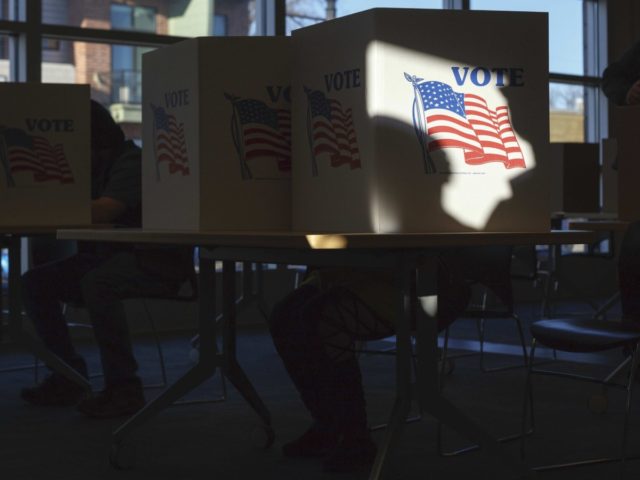CLAIM: It is legal for Michigan to send unsolicited applications to vote by mail to every registered voter in the state.
VERDICT: UNCLEAR. The New York Times claims it is legal but dances around the central legal obstacle to doing so.
President Donald Trump criticized Michigan on Wednesday for announcing that it would send absentee ballot applications to all of the state’s 7.7 million voters. (He originally stated, incorrectly, that it was already sending the ballots.)
It is probably unlikely that the president can withhold federal funding to assist with Michigan’s elections this year — which, as the New York Times noted in its own fact check, has probably already been distributed to the states.
However, the Trump campaign actually has a fairly good legal case against the state sending unsolicited vote-by-mail applications to voters. The key word is “unsolicited.”
The Times notes that “a Trump campaign official cited a 2008 Michigan case in which a judge said local clerks could not send absentee ballot applications to a limited universe of voters.” However, it adds, that was before a 2018 ballot initiative that amended the state’s constitution to allow absentee voting for any reason. The Times adds that a voter can physically print a ballot application at home and send it in.
The 2018 amendment — known as Proposition 3 — does not actually answer the objection raised by the 2008 case. It says that voters can apply to vote by mail for any reason, and it also says that state election authorities “shall have the authority to make absent voter ballots available for voting in person at additional times and places beyond what is required herein.” But it does not say that state authorities should be able to make voting by mail more available than required, nor does it authorize state authorities to send unsolicited applications.
In the 2008 case, Fleming v. Macomb, the Michigan Court of Appeals held unanimously that while private entities — including political parties — may send unsolicited absentee ballot applications to their members, the state itself cannot.
The court referred to Michigan’s election statute which still — even after the 2018 amendment — does not provide the express authority for state or local officials to mail ballot applications to voters who have not requested them first.
The Times‘ “fact check” claims that the 2008 case is no longer applicable because it involved sending applications to “a limited universe of voters.” While that was one of the issues in the lawsuit, it was not the basis for the court’s decision.
The fact that voters can already print ballot applications at home also suggests that the state did not contemplate a need to authorize officials to mail unsolicited applications.
Therefore President Trump is on solid legal ground when he claims that Michigan’s effort “was done illegally and without authorization.” It is possible a court could disagree, but he has a good argument, well-rooted in precedent and the text of the Michigan election statute.
As for funding, that is another issue. It is possible that Trump could withhold other, future funding to the state — though that could prove more politically damaging than the risk of voter fraud itself.
Joel B. Pollak is Senior Editor-at-Large at Breitbart News and the host of Breitbart News Sunday on Sirius XM Patriot on Sunday evenings from 7 p.m. to 10 p.m. ET (4 p.m. to 7 p.m. PT). His new book, RED NOVEMBER, is available for pre-order. He is a winner of the 2018 Robert Novak Journalism Alumni Fellowship. Follow him on Twitter at @joelpollak.

COMMENTS
Please let us know if you're having issues with commenting.